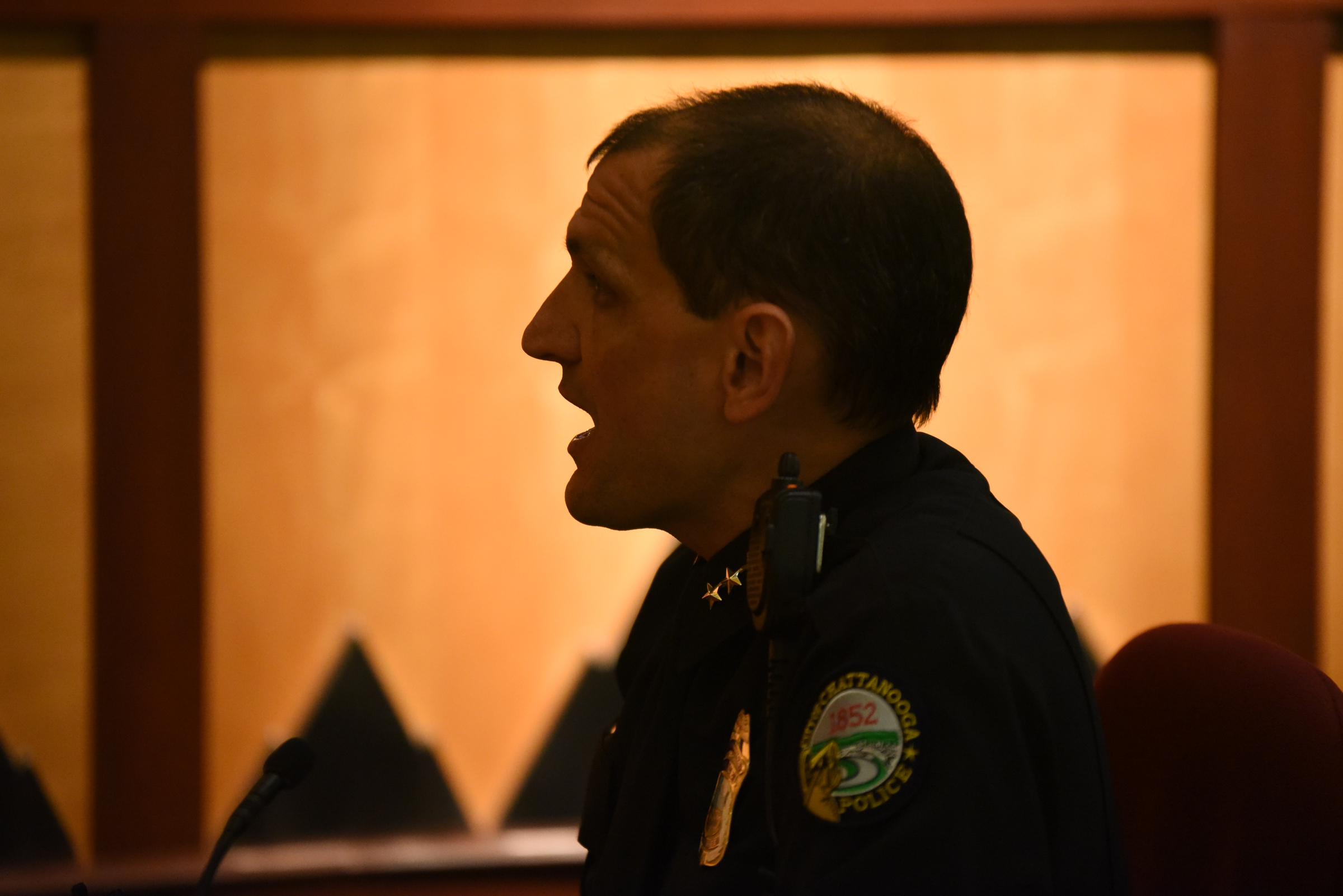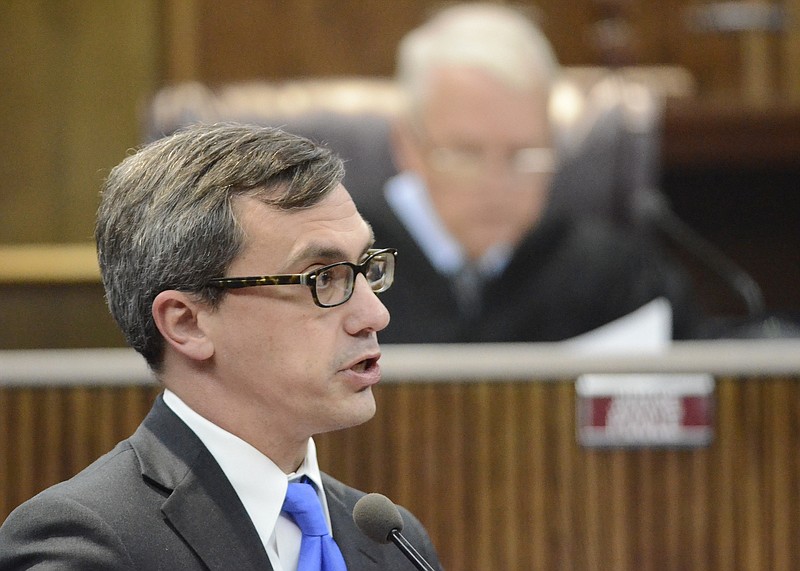He and other Chattanooga leaders had championed the bill, which was designed to levy significantly heavier sentences against gang members who committed particular - and mostly violent - crimes.
 Chattanooga Police Chief Fred Fletcher makes a strong case concerning the successes his men have had with the VRI program during Tuesday's meeting with the Chattanooga City Council to discuss gang violence. Agencies involved with the initiative were invited to report to the council, but Hamilton County District Attorney Neal Pinkston declined and now says he'll ignore a resulting council subpoena for next Tuesday.
Chattanooga Police Chief Fred Fletcher makes a strong case concerning the successes his men have had with the VRI program during Tuesday's meeting with the Chattanooga City Council to discuss gang violence. Agencies involved with the initiative were invited to report to the council, but Hamilton County District Attorney Neal Pinkston declined and now says he'll ignore a resulting council subpoena for next Tuesday.The court ruled the law would be acceptable if it specified that gang members would face enhanced sentences for gang-related offenses.
But the current statute fails to include that requirement, which makes it possible for defendants to face extra punishment for crimes completely unrelated to their gang membership. And that, the court ruled, is unconstitutional.
"Because [the statute] fails to even obtusely target gang-related criminal activity, it lacks a reasonable relationship to achieving the legitimate legislative purpose of deterring criminal gang activity and therefore violates the principles of substantive due process," Judge Timothy Easter wrote in the 57-page opinion.
Hamilton County District Attorney General Neal Pinkston suggested Friday that the ruling makes it more difficult for him to target gang members under the city's Violence Reduction Initiative because prosecutors cannot ask for longer sentences for targeted gang members based solely on their gang membership.
"Not even an extra day," Pinkston wrote in an email.
But other city leaders said the court's ruling should have no impact on the strategy.
"Yesterday's ruling changes nothing," Police Chief Fred Fletcher wrote in an email.Pinkston and other city leaders have repeatedly clashed over the strategy. The VRI aims to reduce gang-related gun violence by cracking down on gang members who continue to shoot while offering social services to those who agree to put their guns down.
The initiative asks prosecutors to push for the maximum possible penalties allowed under the law against targeted gang members. But Pinkston has publicly voiced reservations about that approach since November 2015 and he said Friday the state's decision further ties his hands.
"Yesterday's ruling does change things," he wrote. "Sentencing ranges are based solely on the number of prior offenses and the types of those offenses. Gang affiliation has no bearing on sentencing ranges."
He said his office has never used the gang enhancement statute.
Other VRI leaders say Pinkston doesn't need to ask for enhanced sentences to carry out his part of the anti-violence strategy. He only needs to push for the heaviest possible penalties, however that is defined by law, said David Kennedy, the national criminologist who developed the strategy.
"The appellate court's ruling, while important, should not affect the work of the Chattanooga Violence Reduction Initiative," he said. "VRI does not rely for its impact on gang enhancement statutes or any other special legislation, but on the exercise of each law enforcement partner's ordinary discretion on the cases that relate to the strategy."
Fletcher emphasized that he is not asking Pinkston to prosecute in a way that goes beyond what is lawful.
"VRI was never conditioned on the use of this statute," Fletcher wrote, adding later, "We ask the DA to push, as the prosecutor, for punishments closer to the maximum rather than the minimum."
VRI aside, the court's decision doesn't necessarily mean prosecutors can't use gang affiliation as one of several enhancing factors during sentencing, said retired U.S. Attorney Bill Killian.
This particular law was dubbed unconstitutional because it automatically moved some gang members from a lower range of sentencing to a higher range based on their gang membership. The court's ruling nixed that automatic elevation, Killian said, but a judge can still use gang affiliation to increase a defendant's sentence within the range.
"Gang activity will always be a factor," Killian said. "Not only gang activity, but the nature of the violent crime, the use of a gun, someone's criminal history - those factors are always used to assess what you charge someone with and how serious a sentence you seek for them."
Contact staff writer Shelly Bradbury at 423-757-6525 or sbradbury@timesfreepress.com with tips or story ideas. Follow on Twitter @ShellyBradbury.


